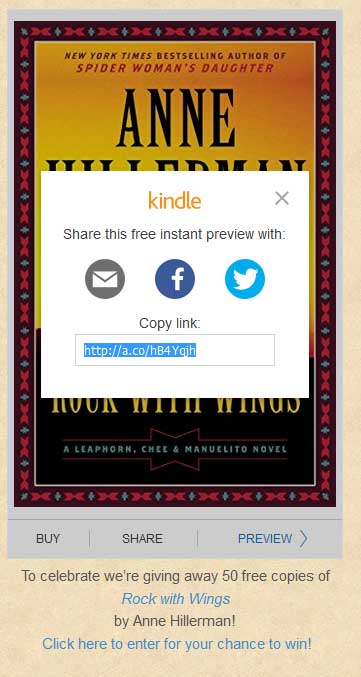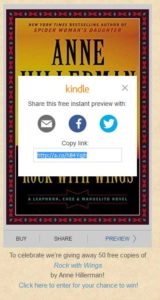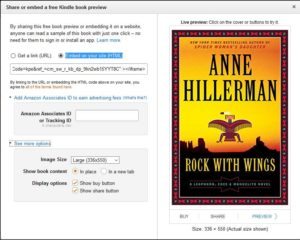Quick links, bringing you great articles on writing from all over the web.
~ * ~
Publishing: Kindle Scout Case Study
 By Katherine Hayton on July 14, 2016
By Katherine Hayton on July 14, 2016
New Zealand novelist Katherine Hayton shares her inspiring success story about her fourth novel’s success in a Kindle Scout campaign, leading to a publishing contract with Amazon’s own imprint, Kindle Press.
Back in January, I ran a Kindle Scout campaign for my fourth full-length novel, The Three Deaths of Magdalene Lynton, and was accepted for publication by Kindle Press on the 8th February. After the effort of the campaign, I was excited to be selected, and so far my experience with Kindle Press has shown me they can sell a lot more of my books than I could manage on my own. I’m in my second month (release date 29th March) and I think I’ll have earned out my advance by the end of this month, or early next month, so it seems on track with their expectation of 25k over five years.
Regular Promotions by Kindle
Because they’re an Amazon imprint, they have access to place their published books on the advertising slots available to Amazon, and their aim is to place each book in some kind of promotion every ninety days or so. These range from month long $1.99 promotions in genre selections to individual book titles featured on the $0.99 Kindle Daily Deals. From talking with other authors in Kindle Press, there are mixed results among the books they’ve selected. Some authors have taken a year or more to earn out their advance of $1,500, while others have earned over $12,000 in their first year.
Degree of Author Control
An author with Kindle Press retains a lot more control than they would with a larger press, so I had final say over all edits, title, cover, and book description. Anything else (eg categories) can be suggested but not necessarily taken on board. The pricing is determined by word count and seems unshakable apart from a book’s inclusion in discounted pricing promotions. If there’s anything about the book that Kindle Press thinks will harm the chances of promotion slots, they’ll discuss it directly with the author so they have the chance to either change it or stick to their own vision.

 July 7, 2016
July 7, 2016 About three years ago, then-VP, Digital Content and GM of Barnes and Noble’s Nook Press division Theresa Horner sat down with GoodEReader at the Frankfurt Book Fair to discuss the state of the company, namely its self-publishing option and its ebook self-publishing platform. She posed the question as to what it would take to effectively compete with Amazon. Our response–which was not at all tongue in cheek–was for the retailer to stop banning indie authors’ books from brick-and-mortar stores. If Nook Press had developed a viable print-on-demand option and then told authors there was even a possibility of seeing their titles in their local bookstore on the condition that they pulled their books from Amazon’s exclusive KDP Select program, authors would have jumped at the chance.
About three years ago, then-VP, Digital Content and GM of Barnes and Noble’s Nook Press division Theresa Horner sat down with GoodEReader at the Frankfurt Book Fair to discuss the state of the company, namely its self-publishing option and its ebook self-publishing platform. She posed the question as to what it would take to effectively compete with Amazon. Our response–which was not at all tongue in cheek–was for the retailer to stop banning indie authors’ books from brick-and-mortar stores. If Nook Press had developed a viable print-on-demand option and then told authors there was even a possibility of seeing their titles in their local bookstore on the condition that they pulled their books from Amazon’s exclusive KDP Select program, authors would have jumped at the chance. by Cody Toombs, Jul 18, 2016
by Cody Toombs, Jul 18, 2016




 Do most Americans still read books?
Do most Americans still read books? 
 A source at Amazon
A source at Amazon





 There is so much to love. The look has been updated and the embed is mobile ready. Now, people can easily share your book! Add your Amazon affiliate ID during set up, and when they do share your preview, your affiliate link goes along with it. All while on your author site.
There is so much to love. The look has been updated and the embed is mobile ready. Now, people can easily share your book! Add your Amazon affiliate ID during set up, and when they do share your preview, your affiliate link goes along with it. All while on your author site. The best part is that Amazon has made this so very easy to set up. First find your book on Amazon. On the right side of the screen, by the share buttons is the <embed> link. Click on that embed link and customize. You have a choice to create a link that will go to the opened preview pane on Amazon, or the ability to “Embed on your site (HTML)”. Here is where you add your Amazon affiliate tag, and make other customizations such as the size of the image.
The best part is that Amazon has made this so very easy to set up. First find your book on Amazon. On the right side of the screen, by the share buttons is the <embed> link. Click on that embed link and customize. You have a choice to create a link that will go to the opened preview pane on Amazon, or the ability to “Embed on your site (HTML)”. Here is where you add your Amazon affiliate tag, and make other customizations such as the size of the image.